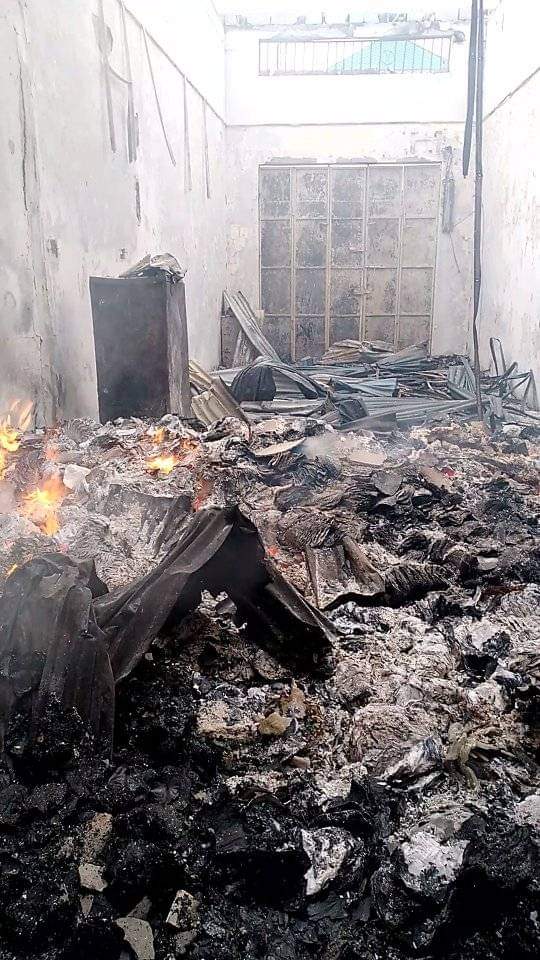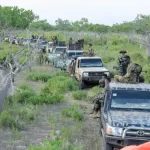ELASHA BIYAHA, Somalia – Al-Shabaab militants have launched a destructive attack on the bustling Ceelasha-biyaha market, located on the outskirts of Mogadishu. According to reports from the Governor of Lower Shabelle region, Mohamed Ibrahim Barre, the attack, which took place late on Saturday night, resulted in the destruction of over 30 shops within what is considered the largest market in the area.
The assault, characterized by bomb explosions, not only signifies a direct hit on the economic fabric of the community but also underscores the ongoing security challenges in Somalia. Governor Barre, in a statement condemning the attack, described Al-Shabaab’s actions as “cruel,” highlighting the significant property damage incurred. “We have successfully put out the fire and saved what was possible,” he stated, adding that a thorough investigation into the incident would be conducted.
The attack on Ceelasha-biyaha market comes amidst a backdrop of increased tensions and security operations in the region. Recent posts on X (formerly Twitter) from local journalists and residents have echoed the sentiment of devastation, with some suggesting that the market’s recent installation of CCTV cameras might have provoked the attack, as Al-Shabaab has previously targeted such surveillance measures.
This incident follows a pattern of Al-Shabaab targeting civilian infrastructure, aiming to destabilize local economies and undermine government control. The market, being a central hub for trade, not only suffers economic losses but also faces the psychological impact of such brazen attacks on the community’s sense of security.
Security forces have been put on high alert, with Governor Barre ordering an immediate investigation to ascertain the full scope of the attack and to potentially prevent future incidents. The response from the community has been one of resilience, with local leaders and traders already discussing recovery and reconstruction efforts, although the path to normalcy will be fraught with challenges.
This attack serves as a grim reminder of the persistent threat posed by Al-Shabaab, despite ongoing efforts by the Somali government and international partners to curb the group’s influence. The destruction in Ceelasha-biyaha not only calls for immediate security measures but also for a renewed focus on economic resilience and community support in regions prone to such attacks.
As the investigation unfolds, the international community watches closely, with many calling for increased support for Somalia’s security forces and economic recovery programs. The incident at Ceelasha-biyaha market is not just a local tragedy but a stark illustration of the broader security dynamics at play in Somalia, where the fight against extremism continues to shape daily life.







